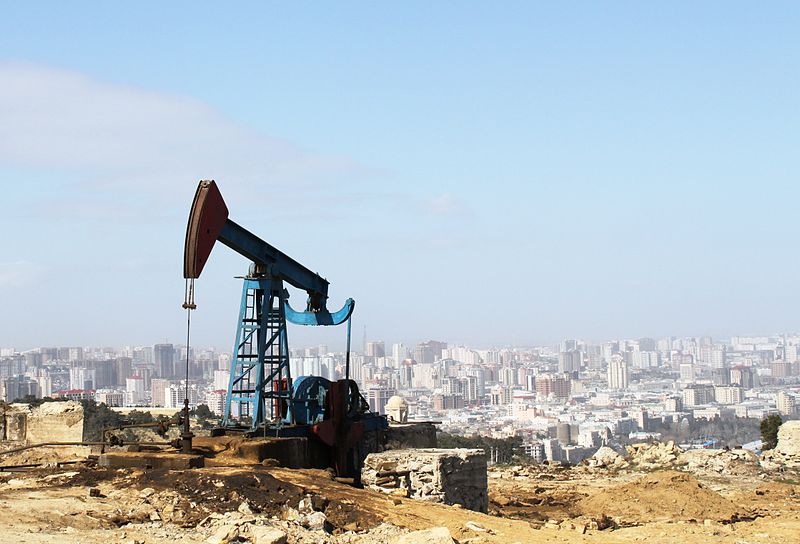Increased demand will primarily be satisfied by the cartel’s countries. Total production of other countries will decrease by 1 million b/d to 55.9 million b/d by the end of 2017. By 2021, however, deliveries will still to grow to 58.6 million b/d, which is less than was expected a year ago. Supply in OPEC, on the other hand, will grow only until 2019 - to 33.7 million b/d. After 2030, production outside OPEC will again start to shrink, while deliveries from the cartel will increase to 41 million b/d, that is from 34% to 37%.
This year, average price of a barrel of OPEC oil will be about $ 40 (today it is just below $ 42, price of Brent - about $ 46) and will continue to grow by $ 5 per year until 2021. On this horizon, the price is determined primarily by the supply-demand balance, as well as amount of reserves. In the long run, the price is expected to reach $ 92 per barrel (in prices of 2015, or $ 155 in nominal prices) against background of rising production costs. The organization also named some relatively new risks, particularly, progress in commercialization of electric vehicles such as low-end models like Tesla 3. At the same time, OPEC still sees transport as a main consumer, followed by chemical industry and aviation.
Level of oil reserves in the world remains a record high, yet the pace of growth has slowed. On this count, OPEC agrees with IEA’s estimate. The latter noted that oil stocks in OECD countries decreased in August for the first five months by 10 million barrels to 3.092 billion barrels. This fall is obliged not only to seasonal factors, but also to a slight increase in demand. With regard to investments in production, their volume is expected to decline this year by $ 80 billion (to $ 360 billion), says OPEC.
In turn, Royal Dutch Shell Plc, the world's second oil producer by market value, said that demand for oil will reach a limit in five years. "In our opinion, demand for this energy source will begin to steadily decline earlier that proposals will do", - said Simon Henry, Chief Financial Officer, last week. "Most likely, it will happen in the next 5-15 years against background of optimization and transition to alternative energy sources".
However, Shell is not afraid to sink into oblivion, since the company, according to Henry, relies primarily on natural gas and is developing new areas of business, such as creation of biofuels and hydrogen. "If popularity of oil falls, its place will be taken by products that we can deliver as well, so the company will remain in leaders of the energy sector in the 2050s", - told Shell’s CFO.
source: bloomberg.com
This year, average price of a barrel of OPEC oil will be about $ 40 (today it is just below $ 42, price of Brent - about $ 46) and will continue to grow by $ 5 per year until 2021. On this horizon, the price is determined primarily by the supply-demand balance, as well as amount of reserves. In the long run, the price is expected to reach $ 92 per barrel (in prices of 2015, or $ 155 in nominal prices) against background of rising production costs. The organization also named some relatively new risks, particularly, progress in commercialization of electric vehicles such as low-end models like Tesla 3. At the same time, OPEC still sees transport as a main consumer, followed by chemical industry and aviation.
Level of oil reserves in the world remains a record high, yet the pace of growth has slowed. On this count, OPEC agrees with IEA’s estimate. The latter noted that oil stocks in OECD countries decreased in August for the first five months by 10 million barrels to 3.092 billion barrels. This fall is obliged not only to seasonal factors, but also to a slight increase in demand. With regard to investments in production, their volume is expected to decline this year by $ 80 billion (to $ 360 billion), says OPEC.
In turn, Royal Dutch Shell Plc, the world's second oil producer by market value, said that demand for oil will reach a limit in five years. "In our opinion, demand for this energy source will begin to steadily decline earlier that proposals will do", - said Simon Henry, Chief Financial Officer, last week. "Most likely, it will happen in the next 5-15 years against background of optimization and transition to alternative energy sources".
However, Shell is not afraid to sink into oblivion, since the company, according to Henry, relies primarily on natural gas and is developing new areas of business, such as creation of biofuels and hydrogen. "If popularity of oil falls, its place will be taken by products that we can deliver as well, so the company will remain in leaders of the energy sector in the 2050s", - told Shell’s CFO.
source: bloomberg.com



















